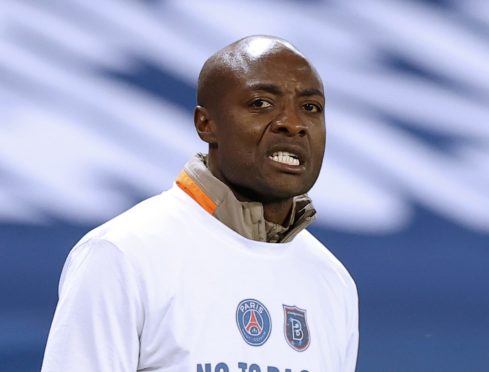
UEFA’s website led with a big story last Wednesday morning.
Juventus had beaten Barcelona 3-0 in the Nou Camp to seal top place in Champions League Group H.
The game had been billed as the final clash between eternal rivals Cristiano Ronaldo and Lionel Messi and the Portuguese was the clear winner, scoring twice from the penalty spot.
There was no questioning the newsworthiness of the Catalan action: between them Ronaldo and Messi have won 11 of the last 12 Ballon D’Or awards.
The two men’s names adorn replica shirts on the back of young footballers in every corner of the planet.
The surprise was the prominence it was given.
For next up on the news schedule was a monumental tale from the Association’s flagship club competition.
It centred around the Champions League tie between Paris Saint-Germain and Istanbul Basaksehir in the French capital.
There, in an extraordinary turn of events the game was abandoned early in the first half after players from both sides walked off the pitch.
They accused fourth official Sebastian Coltescu of using a racist term towards Istanbul’s assistant coach Pierre Webo.
Webo, a former Cameroon international, was shown a red card for his part in an exchange on the touchline.
With the visitors rejecting later attempts to restart the game it was suspended, a move which forced UEFA to carry out some frantic fire-fighting.
Following discussion with both clubs, the governing body announced they would carry out a thorough investigation into the events.
More immediately, it was announced Webo’s red card had been rescinded and the remaining minutes of the tie were to be played out on Wednesday night under the control of a new team of officials.
It is the job of the investigators to analyse the minutiae of what took place and rule on their findings.
The fact different nationalities were involved has already been cited as a potential factor in terms of interpretations of specific terms.
What is hugely significant is what it means for football going forward.
For here was a clear demonstration of the power of a group of players to come together to take instant action against what they alleged was an instance of racism in the game.
They did so in a hugely high-profile tournament, knowing the scrutiny their action would come under.
It was precisely the sort of protest that has been talked about across the game.
Last year UEFA was criticised by anti-racism campaigners for what they saw as a lenient punishment doled out to Bulgaria after a section of their fans abused black England players.
In the game, which was played in Sofia, monkey chants had been directed at members of the visiting team and some members of the crowd were seen making Nazi salutes.
Bulgaria’s penalty was to play a Euro qualifier behind closed doors. They were also fined £64,000 and put on probation for two years.
That did not satisfy some campaigners who had wanted them thrown out of the Euro qualifiers as an example.
In football, as in life, there are varying degrees of gravity of offence with the suitability of sentence often as fiercely debated as the incidents themselves.
Yet if the public support for the Black Lives Matter movement and the taking of the knee before matches has been visual evidence of the determination of players in 2020 to be heard on the subject, Tuesday’s abandonment in Paris was an example of direct action.
UEFA, and indeed world governing body FIFA, will already have been well aware of the strength of feeling in the game.
Here they were given an example of the potential consequences if players perceive the associations are not doing enough to combat racism.
Namely that they will take the action themselves to highlight the issue and in the process draw negative attention from wider society to the game.
No governing body in any sport wants to be seen as unable to police its own competitions.
It is an embarrassment and one which no amount of artificially inflated rivalry between the game’s two most extraordinarily gifted talents can put a sheen on.
Any club or country found guilty of breaches in the near future should be ready to dodge the book that will be about to be thrown in their direction.

Enjoy the convenience of having The Sunday Post delivered as a digital ePaper straight to your smartphone, tablet or computer.
Subscribe for only £5.49 a month and enjoy all the benefits of the printed paper as a digital replica.
Subscribe